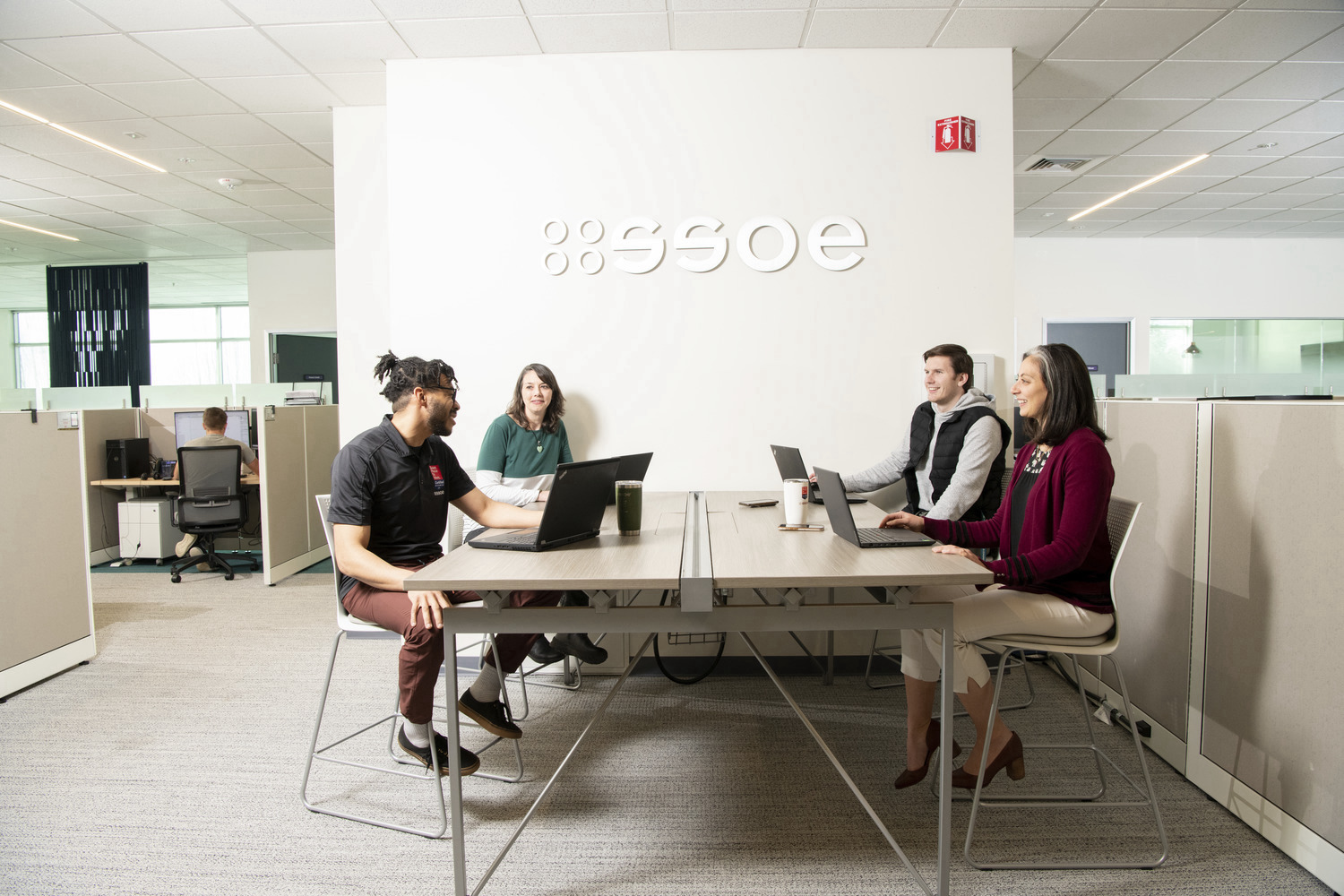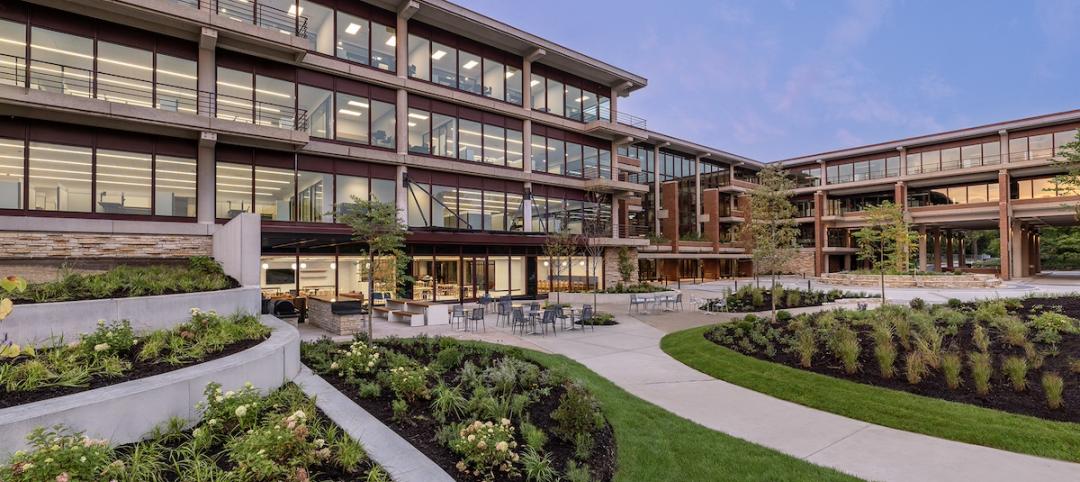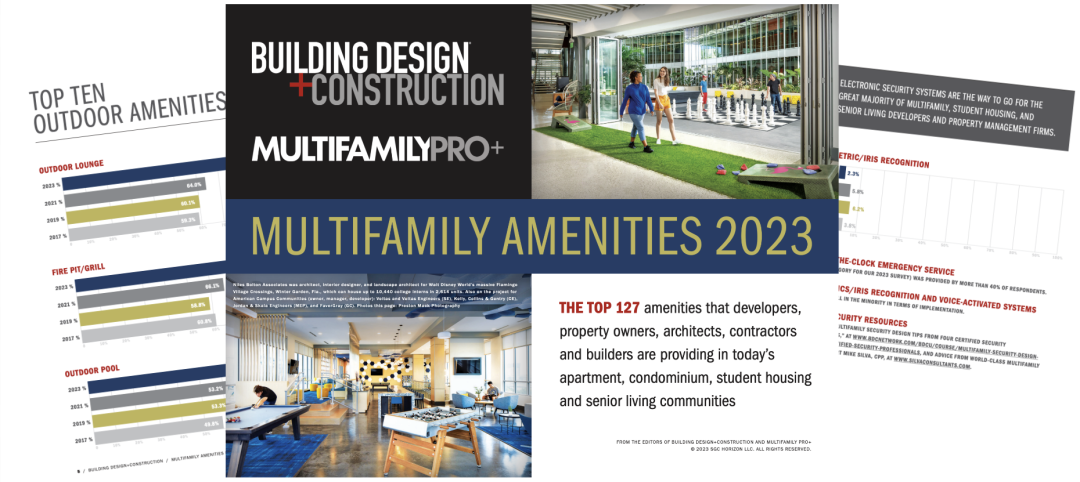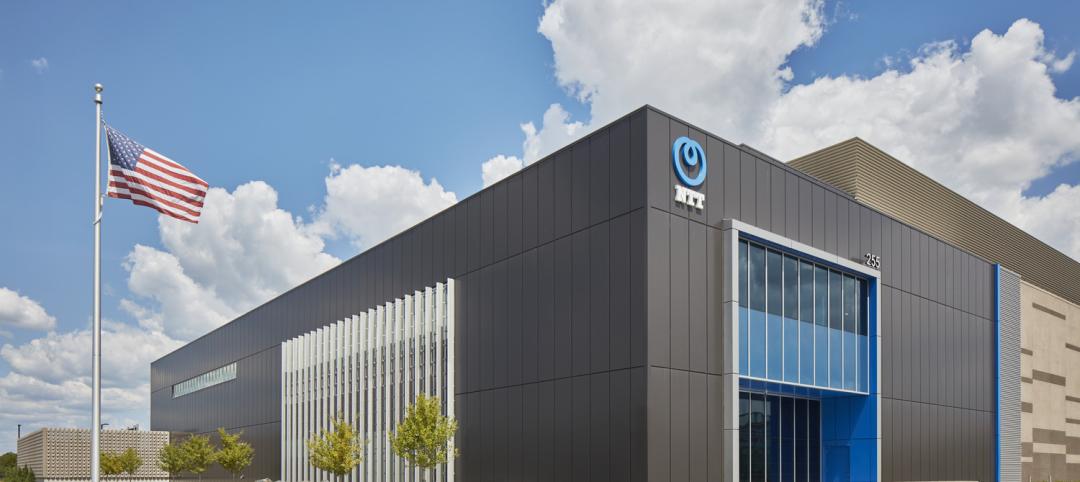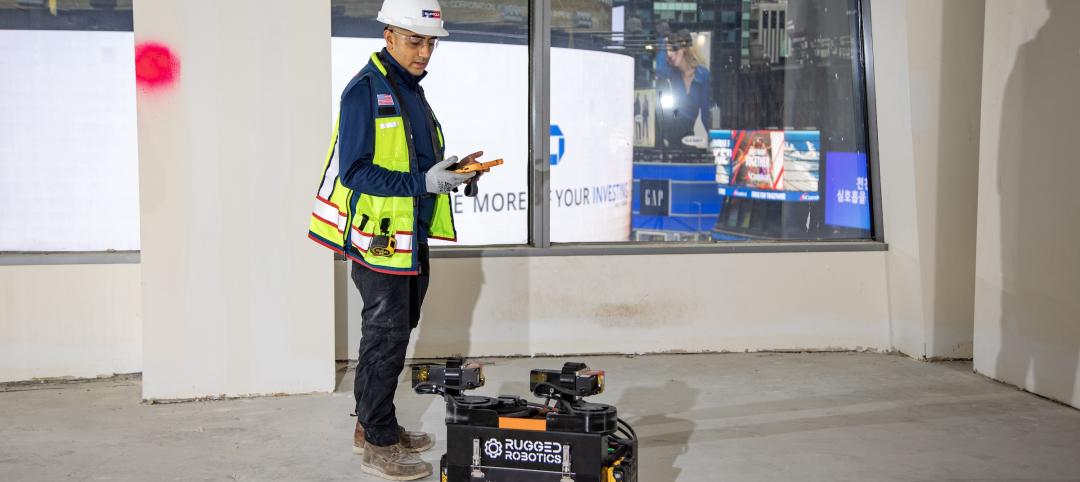In early 2022, the AE firm SSOE Group’s Board of Directors reiterated its commitment to Diversity, Equity, and Inclusion (DEI). Thus began a journey that found SSOE moving toward a more representative mix of diverse employees within its nearly 1,500-person workforce, on project teams and in corporate groups.
This mandate led to the formation of advocacy groups for underrepresented employees within the company, as well as changes in SSOE’s hiring practices and employee benefits. It has also placed SSOE in a better position to compete for projects from developers and organizations (especially in the public sector) that are seeking partners with well-defined DEI programs.
A growing number of AEC firms have been looking at themselves critically through DEI lenses that have brought into sharper relief shortcomings in their human resource policies and programs. These assessments are also being conducted at a time when a company’s DEI reputation can be a determinative factor in where skilled and educated employees choose to work.
SSOE Group can be seen as a case study for how AEC firms are adapting to employees’ shifting expectations of more-inclusive work cultures.
Top-down support for DEI efforts
Catherine Myers, PE, SSOE’s President, notes that prior to its latest actions, the firm didn’t have a specific DEI-focused group that was directly connected to the Board of Directors. That changed when, in March 2022, SSOE added a DEI committee to its Board, and hired its first Director of DEI, Candice Harrison, who had previously been external communications manager for the Toledo (Ohio) Public Schools.
To encourage team buy-in, SSOE held global DEI roundtable discussions in small groups. More than 15 percent of the company’s workers responded to questions that probed their understanding of DEI, why they thought improvements were important for the company, and what challenges in its execution might arise.
Outcomes from these sessions helped to establish DEI priorities such as enhancing diversity in the talent pipeline and setting metrics and management tools.
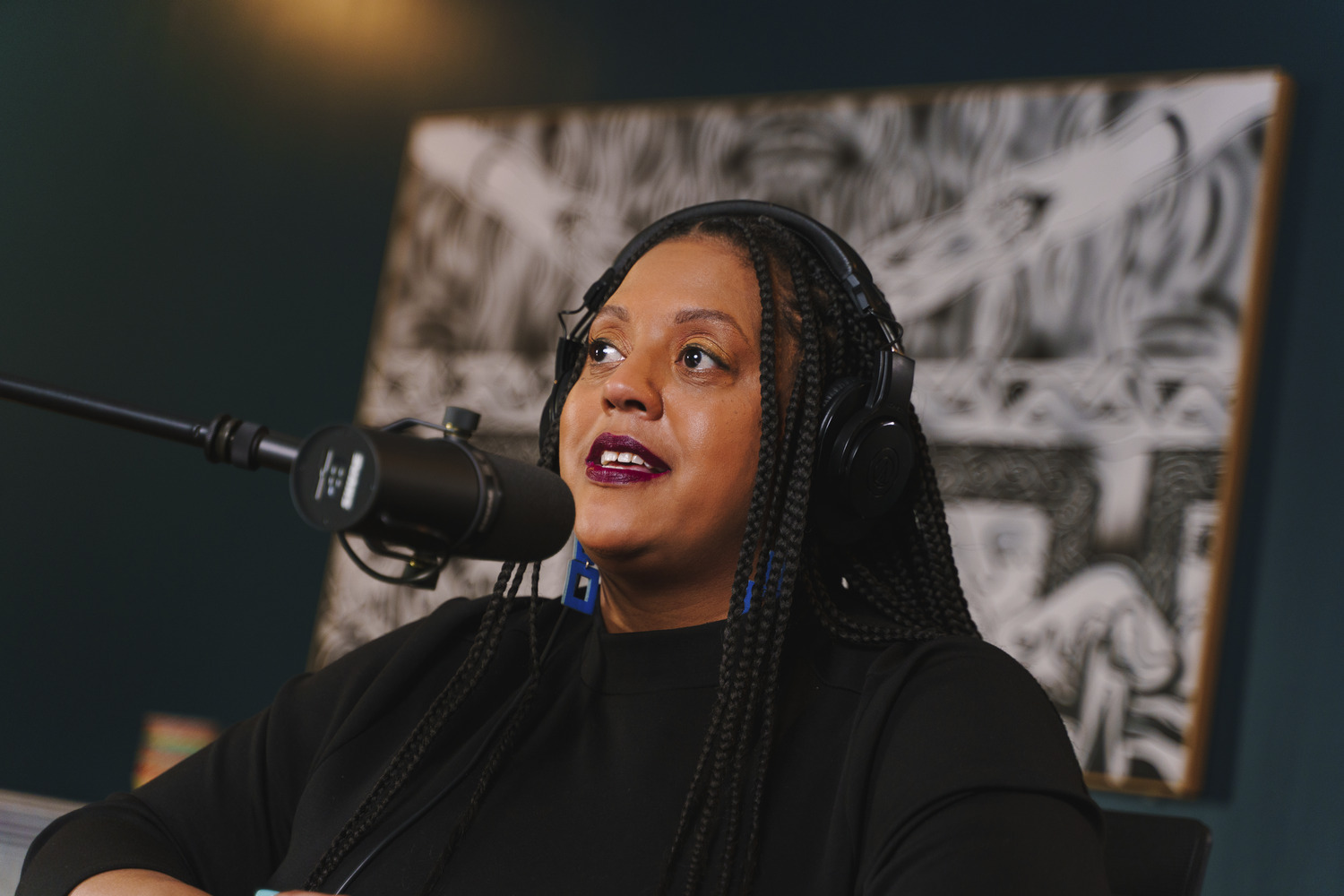
DEI groups give voice to different employees
After completing this company-wide assessment, SSOE Group formed internal Employee Resource Groups (ERG) to give greater voice to its underrepresented workers. One group, the Black Leaders and Collaborative Change Makers (BLACC), initially had 25 active members; the PRIDE group for LGBTQ+ individuals had 27 members; and there were 72 participants in the Women’s ERG. (At the time, SSOE had very few women in its engineering and architecture departments, particularly in leadership roles. And female technical employees created a subgroup because they had different needs regarding representation and support than the larger Women’s ERG.)
Participation in the ERGs was voluntary but strongly encouraged. Each group had at least one member of leadership as an executive sponsor who sometimes came from outside the respective underrepresented group.
Each ERG devised its own mission statement and charter, as well as a leadership/management hierarchy. Broad objectives were refined for specific actions that could range from recognizing holidays like Martin Luther King Day to revising time-off policies. Each ERG meets monthly, and in their first year, the groups were instrumental in strategic benefits planning and Lean Operating Strategy initiatives. The BLACC group assisted SSOE’s human resources department in recruitment events, and invited Dr. Melvin Garvey, the author of Dear White Friend, to speak about DEI.
SSOE has partnered with Historically Black Colleges and Universities such as Tennessee State, through which the firm conferred its first scholarship. The firm’s DEI program also partnered with the National Society of Black Engineers and the Society of Women Engineers. SSOE developed corporate metrics that impact the entire company related to DEI. Tracking those markets is tied to performance, which encourages corporate accountability.
The PRIDE ERG partnered with Hummingbird Humanity, a DEI consulting firm, to help the group elucidate the history of the gay pride movement and to dive deeper into gender identity.
DEI can provide a competitive edge
As part of its DEI journey, SSOE Group conducts virtual training sessions on diversity. The firm required attendance for employees to receive their bonuses. According to Harrison, the focus of SSOE’s diversity efforts has been to embed DEI into daily operations, “creating a space where our employees feel as though they can bring their whole selves to work and have a sense of belonging.”
As the cultivation of these values becomes more intensified, SSOE can distinguish itself with potential partners and incoming employees. “What we’ve developed is more focused on measurement,” said a company spokesperson.
Related Stories
Office Buildings | Mar 5, 2024
Former McDonald’s headquarters transformed into modern office building for Ace Hardware
In Oak Brook, Ill., about 15 miles west of downtown Chicago, McDonald’s former corporate headquarters has been transformed into a modern office building for its new tenant, Ace Hardware. Now for the first time, Ace Hardware can bring 1,700 employees from three facilities under one roof.
Green | Mar 5, 2024
New York City’s Green Economy Action Plan aims for building decarbonization
New York City’s recently revealed Green Economy Action Plan includes the goals of the decarbonization of buildings and developing a renewable energy system. The ambitious plan includes enabling low-carbon alternatives in the transportation sector and boosting green industries, aiming to create more than 12,000 green economy apprenticeships by 2040.
Lighting | Mar 4, 2024
Illuminating your path to energy efficiency
Design Collaborative's Kelsey Rowe, PE, CLD, shares some tools, resources, and next steps to guide you through the process of lighting design.
MFPRO+ News | Mar 1, 2024
Housing affordability, speed of construction are top of mind for multifamily architecture and construction firms
The 2023 Multifamily Giants get creative to solve the affordability crisis, while helping their developer clients build faster and more economically.
K-12 Schools | Feb 29, 2024
Average age of U.S. school buildings is just under 50 years
The average age of a main instructional school building in the United States is 49 years, according to a survey by the National Center for Education Statistics (NCES). About 38% of schools were built before 1970. Roughly half of the schools surveyed have undergone a major building renovation or addition.
MFPRO+ Research | Feb 28, 2024
New download: BD+C's 2023 Multifamily Amenities report
New research from Building Design+Construction and Multifamily Pro+ highlights the 127 top amenities that developers, property owners, architects, contractors, and builders are providing in today’s apartment, condominium, student housing, and senior living communities.
AEC Tech | Feb 28, 2024
How to harness LIDAR and BIM technology for precise building data, equipment needs
By following the Scan to Point Cloud + Point Cloud to BIM process, organizations can leverage the power of LIDAR and BIM technology at the same time. This optimizes the documentation of existing building conditions, functions, and equipment needs as a current condition and as a starting point for future physical plant expansion projects.
Data Centers | Feb 28, 2024
What’s next for data center design in 2024
Nuclear power, direct-to-chip liquid cooling, and data centers as learning destinations are among the emerging design trends in the data center sector, according to Scott Hays, Sector Leader, Sustainable Design, with HED.
Windows and Doors | Feb 28, 2024
DOE launches $2 million prize to advance cost-effective, energy-efficient commercial windows
The U.S. Department of Energy launched the American-Made Building Envelope Innovation Prize—Secondary Glazing Systems. The program will offer up to $2 million to encourage production of high-performance, cost-effective commercial windows.
AEC Innovators | Feb 28, 2024
How Suffolk Construction identifies ConTech and PropTech startups for investment, adoption
Contractor giant Suffolk Construction has invested in 27 ConTech and PropTech companies since 2019 through its Suffolk Technologies venture capital firm. Parker Mundt, Suffolk Technologies’ Vice President–Platforms, recently spoke with Building Design+Construction about his company’s investment strategy.


